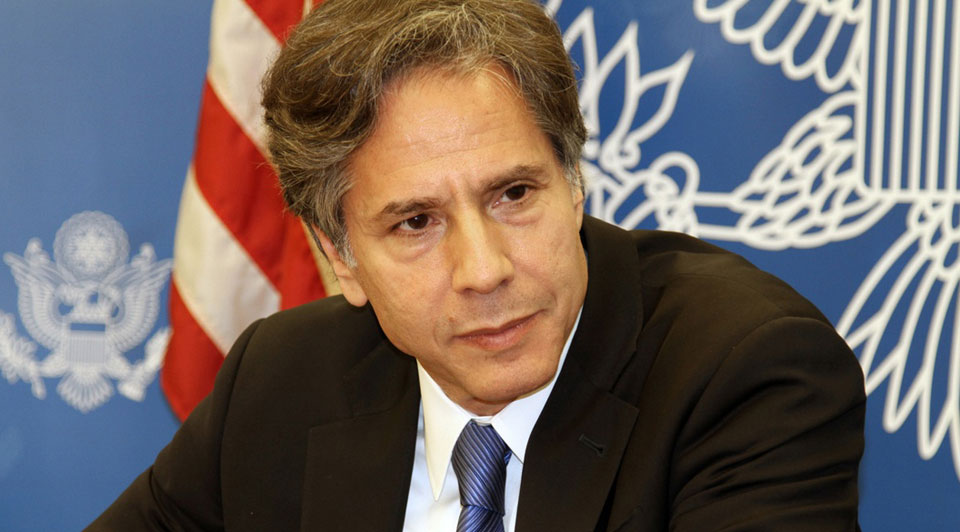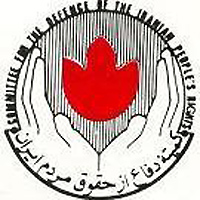
Since coming to office Joe Biden has issued a flurry of executive orders aimed at freezing or reversing some of the worst excesses of the Trump administration.
Newly appointed Secretary of State Antony Blinken has already commented on the Joint Comprehensive Plan of Action (JCPOA), the nuclear deal struck by Iran and six major powers in 2015, which committed Iran to restricting its nuclear program in return for sanctions relief from the United States and others.
Donald Trump put the United States in violation of the deal by abandoning it in 2018, reimposing U.S. sanctions, and adopting a policy of “maximum pressure” upon the regime in Tehran.
Few were surprised when, in response, the Islamic Republic itself began to violate the terms of the agreement and increase its uranium enrichment program.
Biden has appointed Robert Malley as Iran envoy with the job of reviving the deal with the proviso “that if Iran comes back into full compliance with its obligations under the JCPOA, the United States would do the same thing.”
Blinken has said that if Iran returns to the deal, Washington would seek to build a “longer and stronger agreement” that would deal with other “deeply problematic” issues.
It is known that President Biden has identified what the U.S. regards as “deeply problematic” areas, including Iran’s development of ballistic missiles and its support for proxy forces in countries such as Iraq, Syria, Lebanon, and Yemen.
These areas are not covered under JCPOA. It may be that the U.S. is seeking to use them as leverage to bring Iran to the negotiating table.
As Blinken has said, “Iran is out of compliance on a number of fronts and it would take some time, should it make the decision to do so, for it to come back into compliance and time for us then to assess whether it was meeting its obligations.”
The Trump administration has done a great deal to exacerbate tensions in the region, increasing the militarisation of regimes hostile to Iran significantly.
Israel, which portrays Iran as an existential threat, is widely believed to have a covert nuclear arsenal, as well as being the most well-armed conventional military force in the region.
Saudi Arabia is now the world’s largest military arms importer, mainly buying from the United States.
The United Arab Emirates (UAE), is also another leading purchaser of U.S. weapons. Both countries have played a leading role in the coalition which has brought widespread death, destruction, and the world’s worst humanitarian crisis, to civilians in Yemen since 2015.
Iran’s backing for the Houthi rebels in Yemen puts them in direct opposition to the Saudi position. By the same token, Iranian backing for Hamas in Gaza, Hezbollah in Lebanon, and the Assad government in Syria is taken a dim view of in Israel.
While Biden may be making noises towards a more consensual approach in the region, including the temporary suspension of arms sales to Saudi Arabia and the UAE, it is clear that Israel and Saudi Arabia are opposed to rapprochement with Iran on any terms.
Time will tell if Biden’s resolve will be able to resist the pressure of these traditional allies of the United States in the Middle East, not to mention the significant U.S. Jewish and congressional lobby.
Iranian Foreign Minister Mohammed Javad Zarif made the Iranian position clear in a recent article in the Foreign Affairs journal, stating: “U.S. President Joe Biden can choose a better path by ending Trump’s failed policy of ‘maximum pressure’ and returning to the deal his predecessor abandoned.
“If he does, Iran will likewise return to full implementation of our commitments under the nuclear deal.
“But if Washington instead insists on extracting concessions, then this opportunity will be lost.
“Some Western policy-makers and analysts continue to speak of ‘containing’ Iran. But they would do well to remember that as a powerful player in the region, Iran has legitimate security concerns, rights, and interests — just as any other nation does.”
There are reports that there have been contacts between the negotiating teams of the Iranian Foreign Ministry and the Biden administration.
Initial indications suggest that if neither of the two sides show intransigence, a formula could be found for Iran-U.S. negotiations to start, resulting in the punishing U.S. economic sanctions on Iran to be lifted and for Iran to return to full compliance with JCPOA.
There is no doubt that, in spite of hawkish pressure from Israel and others in the region, the U.S. cannot enter another war like the Iraq war when it deployed 185,000 soldiers, spent at least $1.2 trillion, and had thousands of casualties.
The U.S. is also aware that it has lost much of the credibility it may have had in the Middle East because of the policies enacted during the Trump presidency.
For its part, in spite of its rhetorical bravado, internally the Islamic Republic is totally exhausted.
The country’s resources are drained and the varying sanctions regimes imposed since 2011, intensified by Trump, have brought the theocracy to its knees. For the Iranian leadership, the options are becoming narrower.
Iran, under the current regime, has two options. It can seek to reach an agreement with the U.S., get the sanctions removed, and hope that this returns life in the country to some degree of normality.
For this to succeed the regime needs to negotiate and co-operate with the Biden administration, as well as respond positively to the key concerns of the International Labour Organisation and other world bodies, about the extensive violations of human and democratic rights in Iran.
The second path would be for Iran to adopt a hard-line posture, such as that taken by Saddam Hussein’s Iraq. However, at best this approach would mean an isolated, secretive, and even more repressive state than at present, with no prospects to guarantee a long-term future.
All indications suggest that the Iranian leadership prefers the first option.
Another option would be the resurgence of popular protests in Iran aimed at overthrowing the ruling theocracy and the establishment of a free, peaceful, democratic Iran.
The Iranian people are resisting. Tens of thousands came to the streets of Tehran, as well as towns and cities across Iran, in November 2019 to protest against endemic poverty and repressive theocratic rule.
The protesters were met with brutality by the security forces and were targeted with live ammunition. In spite of such brutal response, protests, labor disputes, and resistance to the endemic corruption continues.
The Iranian people do not need hostility and threats from the outside, nor do they need those in favor of democracy to be fooled by the phony anti-imperialist rhetoric of Iran’s leaders.
The current regime has no long-term answers or future but resistance to outside interference must be a priority to give the Iranian people the time and opportunity to forge their own path.
The opportunity for even limited change which the Biden administration represents must be grasped, to give the people of Iran the chance to shape their own future.
For more information please visit www.codir.net.
This article was reposted from Morning Star.












Comments